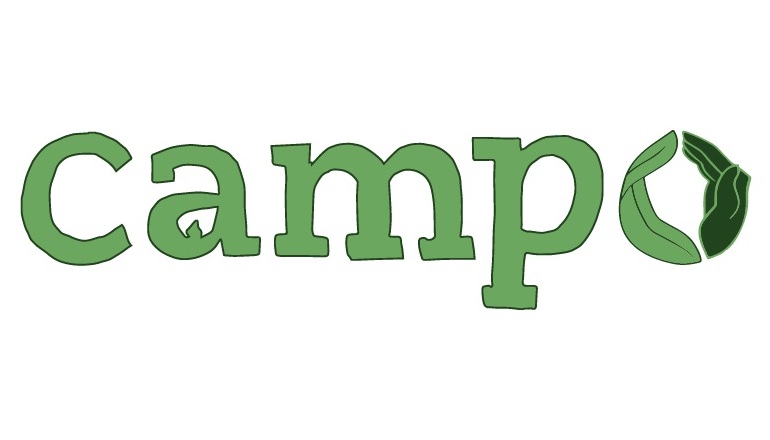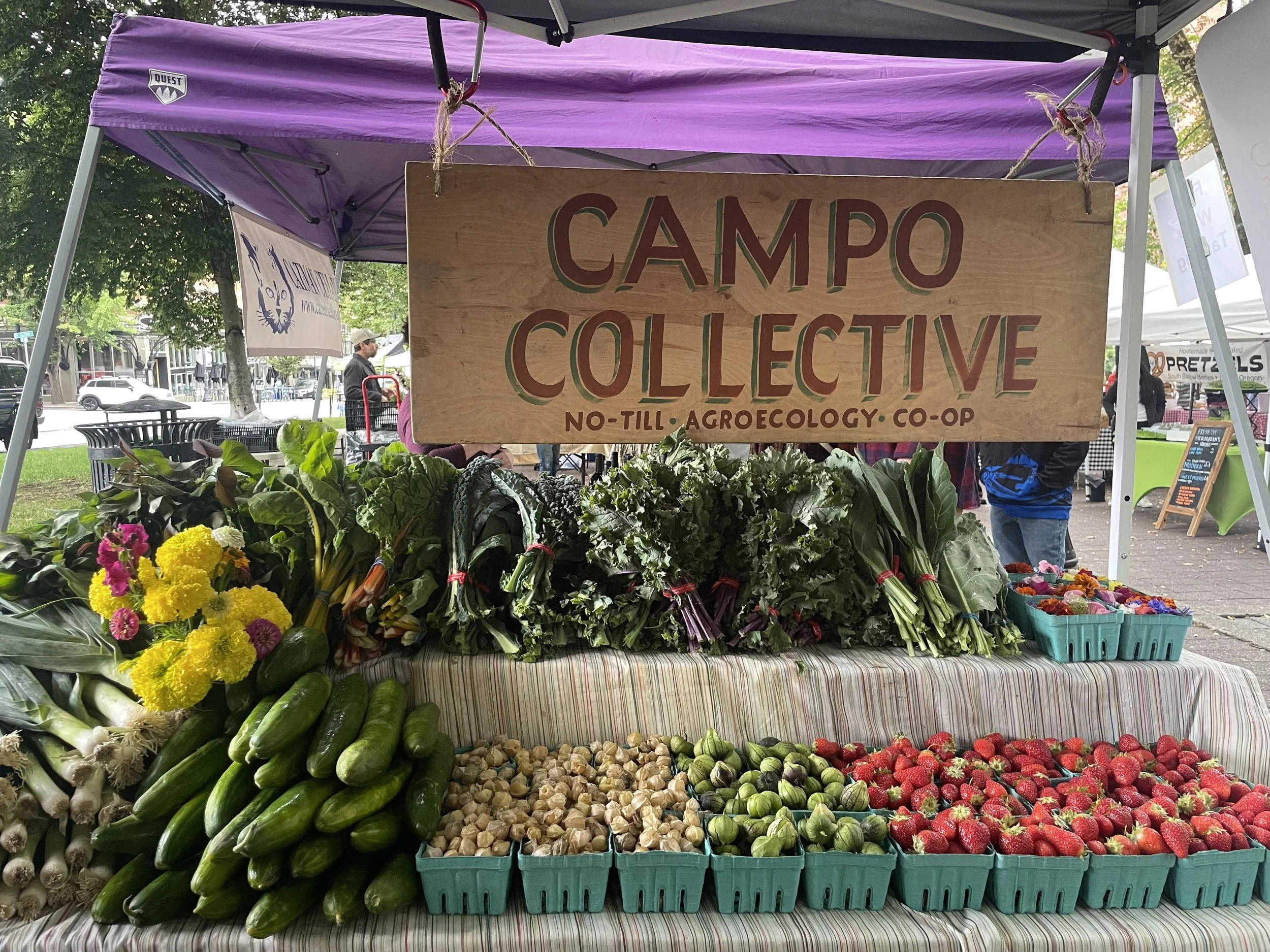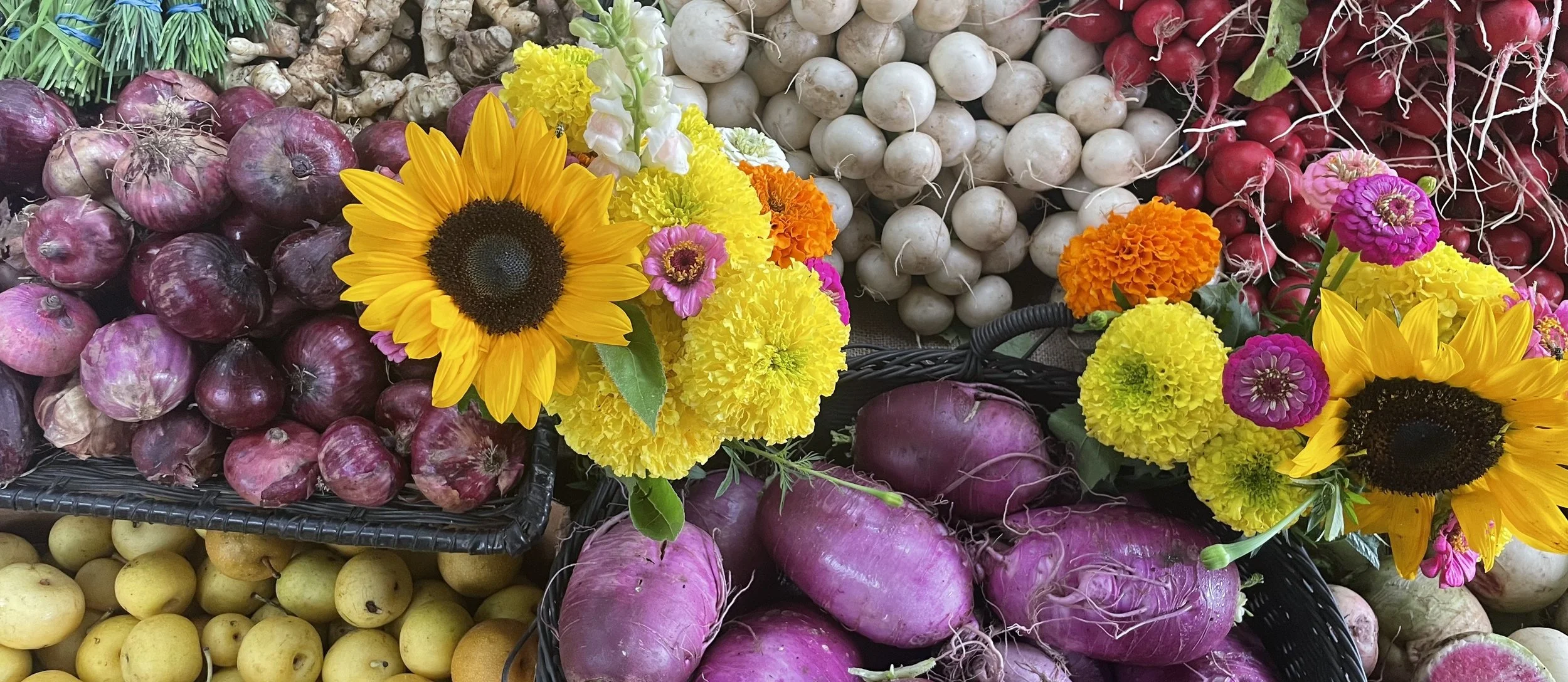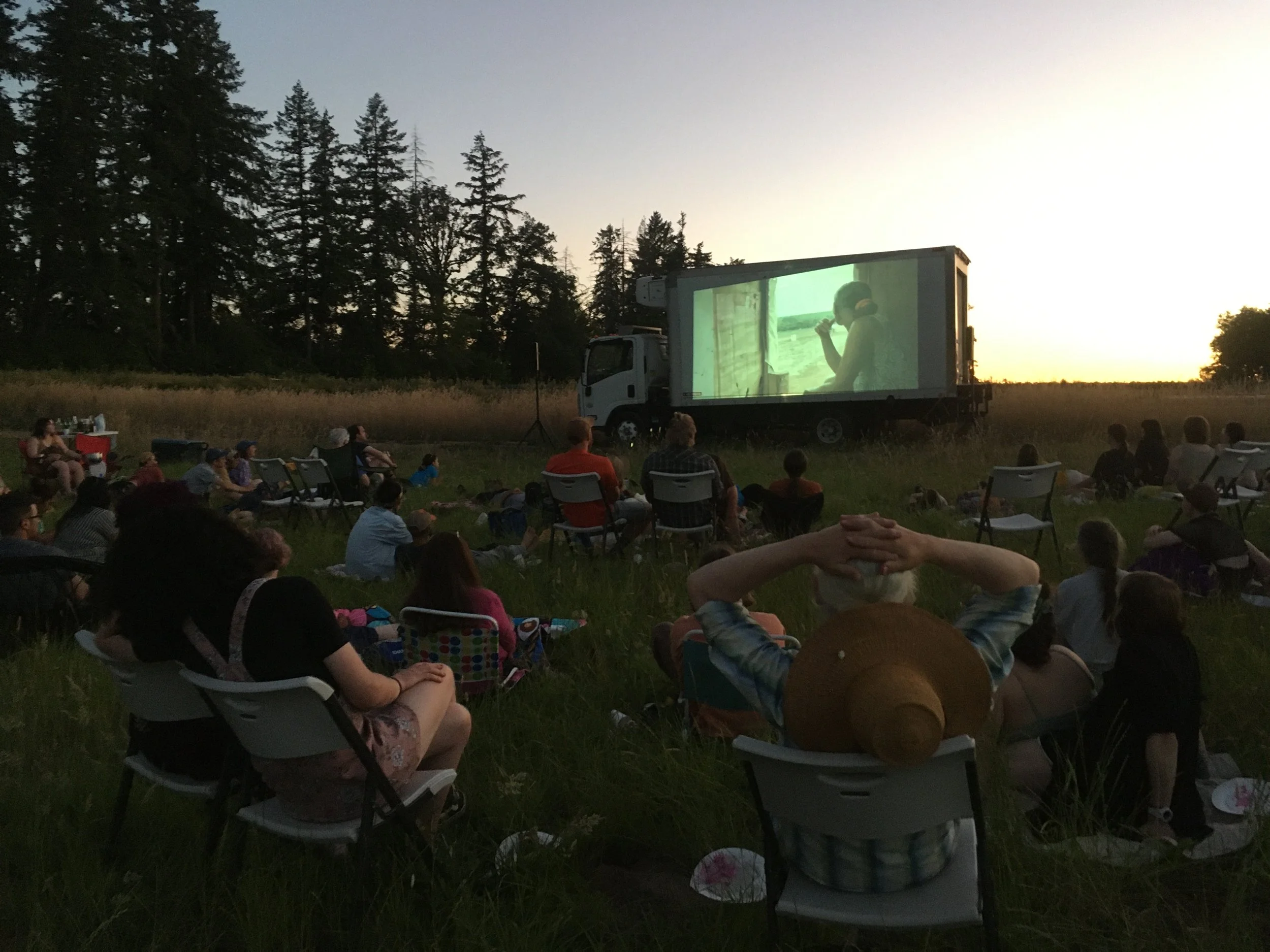Hola, gracias por venir a nuestro website ~ please read everything before signing up for a share as some things have changed this year.
Campo’s CSA — Firstly, this is our fifth season as a cooperative farm and we’d love to extend a thanks to everyone who’s been with us since the beginning and everyone who’s joined our CSA throughout the years. How does it work? How much does it cost? Where do I pick it up? A little bit about how our CSA functions: Our CSA is market-style—you come and choose your vegetables from our farmer’s market booth, that way you choose what you get each week. 22 weeks of fresh and organic vegetables, grown cooperatively and brought to market every Wednesdays. This year, we are offering one share size which will fluctuate with the season’s bounty — from 7 to 12 items each week.
What do shares look like? In June, you could take home a bunch of kale, herbs such as cilantro, chervil, chamomile, parsley, etc…#1 of new potatoes, a radish bunch, a pint of strawberries, and a pint of peas. In September, a share might look like 2# cucumber, a pint of cherry tomatoes, 2# summer squash, a 1/2#bag of salad, a bunch of greens, 1/2# bag of green beans, 3 peppers, 2 heads of garlic, #1 potatoes, and 2 bunches of mixed herbs.
CSA SHARE PICK UP LOCATION, DATE & TIME
22 weeks starting on June 4—October 29
Wednesdays, 10 a.m. — 2 p.m.
Shemanski Park, 1010 SW Park Ave, Portland, OR 97205
PRICING
We have multiple options for pricing to accommodate what you can afford. We don’t want fresh and healthful food to be kept behind inaccessible paywalls—and at the same time, we want to recognize the labor involved in choosing to grow food in a healthful, ecologically-minded way. When you choose to support local and small farms, which can dependably provide your household with vegetables, fruits, herbs, and flowers as opposed to depending on larger chains and food systems full of inequity and damage to our ecology, you are helping create a network and community which is resilient and ready to continue growing your food when larger systems break down or fail us. Supporting by buying a CSA means that you are investing capital into the growing of our food, when we’ve spent months beforehand preparing the soil and the vegetables for growing, and making little income. CSAs are a wonderful way to get involved in your local food ways and eating seasonal food.
PRICES
Market Value: $750 ($34/week value)
Lower-Income Value: $600 ($27/week value)
Supporter Price: $850/week ($38/week value)
Our economic system intersects with issues of food sovereignty and systemic racism making certain demographics more inclined to have less access to what we consider a right: healthy food. If you have income to spare, consider Donating a Share or paying the Supporter price.
How do we pay for a share?
We love it if you’re able to pay your share up-front, but understand that isn’t always possible. That’s why we offer you to pay a $100 deposit on the first day of pick up, and incrementally pay for your share throughout the season. We take cash or checks at the farmer’s market. If you choose to pay with a card at market, we must add a processing fee which will be a percentage based on your payment. We do not have online payments or VenMo at this time.
SNAP
As always, we partner with SNAP and Double Up Food Bucks to make sure folks have access to CSA payments using their benefits. Let us know that’s what you would like to do in your sign up email to us and we will follow up with instructions.
Folks gathered on the land at Stoneboat Farm/Campo Collective for the first film Chao/Landless by Camila Freitas in the 2021 Agroecology Series. Artist Meech Boakye provided beautiful food made from farm products and we collected funds for local land based projects. To see Meech’s full menu, planning, process and documentation follow this link: https://meechboakye.com/Campo-Collective
About our Farm & Practices
Our vegetables and fruits are grown in a low-till environment with an emphasis on soil health and building microbial and fungal populations in our growing ground. Alongside our annual crop production, we also cultivate perennial crops, and have planted a small orchard with varieties of fruiting trees and shrubs, interspersed with pollinator flowers and culinary herbs. This year, we are adding a sizable lot of chickens to our production and three goats to help with fertilizing and land management.
Why do we emphasize this type of labor and diverse species interaction? Regenerative agriculture is one of the most important tools we have to fight climate change, the decrease in biodiversity and the degradation of rural economies. These environmental priorities must be realized by our communities and put into practice across the globe as soon as possible. The only way to do this in a capitalist economy is to get people with resources like land and capital on board to push this massive, necessary redistribution forward and change labor and farming practices. This is also an opportunity to offer justice and reparation to the communities who are exploited into doing the work of conventional agriculture, one of the largest polluters and environmental poisoners on the planet. Campo Collective is the material result of these beliefs—we are a small cooperative for now, and we farm in order to put into practice all of these necessary changes.
Contact us at campocolectivo2@gmail.com for any questions or comments or to sign up for a share. Alternatively, you can click on the button below. It will open your email and prompt you to email us. Tell us your name and what share price you’d like to sign up at and we’ll take it from there.




